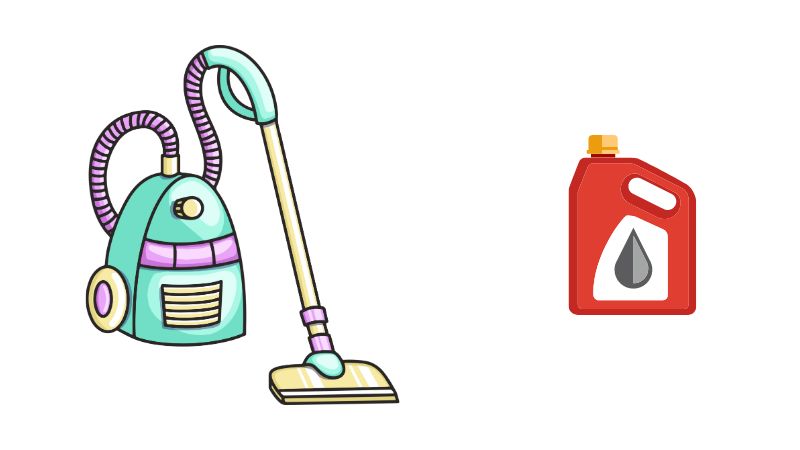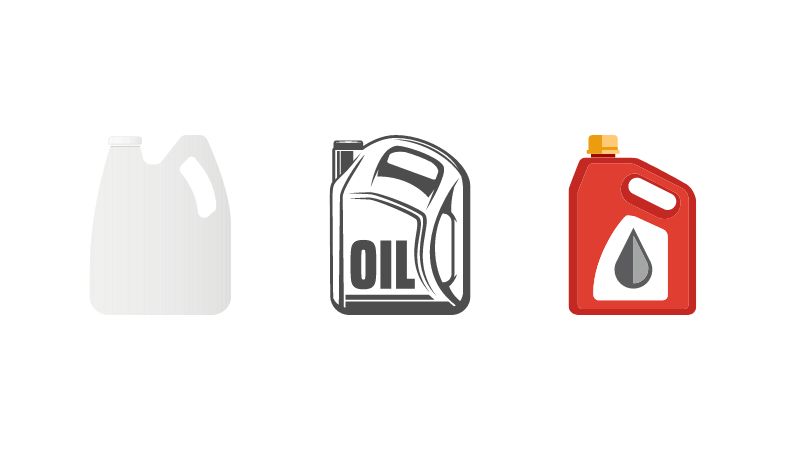Vacuum pump oils are refined mineral oils with low vapor pressure and a specific viscosity. All of this distinguishes them from one another.
This oil is not only derived from distilled petroleum products. Currently, you see silicone-based synthetic oils, which may contain less sulfur. Hydro-treated oils are also pretty standard.
Many vacuum pump oil substitutes exist, so remember its antioxidant, anti-corrosion, and anti-foaming properties before finding this oil. Here we have discussed some vacuum oil alternatives in detail in this article.

Vacuum Pump Oil
The job of this oil is to lubricate your vacuum pump. Therefore it is efficient. It collects moisture and pollutants from the system. And the work of the vacuum pump is to lubricate the gear mechanism. You can see it in dry pumps, for example, screw pumps. In oil-sealed vacuum pumps, the oil makes a gentle rotational cycle.
Detail of the vacuum pump oil
What oil can I use in my vacuum pump?
Pump oil works for different purposes in various pumps and has many functions within similar vacuum pumps. Apart from lubrication, it helps to deliver seals in rotary vane and other wet pumps. Besides this, it acts as a medium to propel the pumped gas by dynamic action in diffusion pumps.
The additives of pump oil are limited to anti-oxidation, corrosion resistance, and anti-foaming. Though vacuum pump oil is more expensive, you can not replace it with motor oil. You can use Harbour freight vacuum pump oil, Autozone vacuum pump oil, and so on.
Whichever oil you select, remember that you must maintain the viscosity. Too thin an oil can’t offer accurate lubrication. Similarly, too thick oil can disrupt the lubricating function. For Example, Liquid ring vacuum pumps require an ISO 22 or ISO 32 viscosity. Rotary vane vacuum pumps require an ISO 68 (SAE 20) or ISO 100 (SAE 30) oil. Subsequently, process pumps need a density of ISO 220 (SAE 50).
Vacuum Pump Oil Substitutes
Different motor environments need other vacuum pump oil. Mainly, selections are so important. Don’t use hydrocarbon-based liquids in an oxygen-rich environment. This is because it allows the fluid to oxidize and produce toxic products.
It would not be very respectful to the pump. In that case, you should use a non-reactive line of fluids. Some flame-retardant liquids are also available for vehicle applications.
The 8 Best Vacuum Pump Oil Substitutes:
As vacuum pump oil is exceptional, what can be the substitutes for vacuum pump oil? This Question may come to your mind. Okay as a substitute, you can use Rotary pump oil, flushing oil, synthetic oil, diffusion pump oil, and some other oils on your vacuum pump. Let’s discuss this in detail:
1. Flushing Oil
The high solvent flushing oil comes to clean baked-on pollutants from mechanical pumps. Furthermore, it can reduce condensates like undesirable solvents and water. Additionally, you can use it before filling the pump with new oil.
2. Rotary Pump Oil
Rotary vane pumps use an eccentrically mounted rotor with two or more vanes. The pump relies on a thin oil film to help offer a seal as the vanes rotate against the pump housing.
Eventually, the used oil in a rotary pump does not offer rotor-bearing lubrication.
3. Diffusion Pump Oil
Diffusion pumps boil the pump oil into a dense vapor and force it through many angled jet nozzles. It captures this pumped gas and takes it to the pump location through dynamic action. In particular, to do this purpose, the liquid used by this pump must have extensively specific properties.
4. Refrigeration Oil:
Instead of vacuum oil, you can use any refrigeration oil. For instance, Suniso 3GS, whose specification is 155 SUS/38*C. Yet, it’s portable mineral oil. The refrigeration oil flush point is 168°C, and the pour point is -40 °C.
Read Also: Refrigeration Compressor Oil
5. Hydro-treated/Hydrocracked Oils:
Hydro-treated oil is hydrocracked vegetable oil. This o is a biofuel created by the hydrogenation of vegetable oils. Yet, the process uses hydrogen to break down large molecules into smaller ones. Meanwhile, hydrogenation accumulates hydrogen into molecules.
6. Polyalphaolefin (PAO):
Polyalphaolefin (PAO) is a synthetic oil. PAOs have demonstrated impressive high and low-temperature performance. They contain excellent thermal and oxidative stability. Their consistency with mineral oils and most synthetics is also commendable.
7. Motor Oil
You can only use straight 30-weight, non-detergent motor oil as a substitute for vacuum pump oil.
8. Esters
Both POE and Dyster are Esters and forms of synthetic oil. In high-temperature applications, you can use these Esters.
It can prevent sludge formation and burnish due to their top polarity. Even more convenient is their ability to clean. Likewise, they act as natural detergents.

Which Vacuum Pump Oil Substitute To Choose?
Judging from the above oil, we would recommend going for ester oil. These are good options that can also be cheaper. Esters are a superior substitute for other synthetic oils. Hence, they offer good liquidity.
Although they are expensive because they are elements collected from all-natural sources, they offer excellent overall performance. They are also green-friendly as they are 100% renewable!
Vacuum pump oil is the same as compressor oil so you can use it on your vacuum pump.
Vacuum Pump Oil Replacement:
Here are some steps to replace the vacuum pump oil:
- First, you should turn the pump off and drain the oil from the pump. Allow the liquid to drain into a perfect container.
- After the oil flow has subsided, please turn on the pump, let it run for about 10 seconds, and stop it. Tap the pump to dislodge any remaining liquid or particles.
- If the fluid draining from the pump is discolored, contains particles, has an odor or is very dirty. Flush the pump using the procedure below until the liquid drains. If the pump needs more than two flushes, goo needs to be rebuilt with a new repair kit.
- Now reinstall this fluid-drain plug in the drain port.
- Refill it with Vacuum pump oil until the oil level is visible at the bottom of the liquid sight glass.
- Close the empty port or close the valve.
- Turn this pump and let it run for 10 min.
- Turn off the pump and drain the oil like in step 1.
- Charge the pump with the specified fluid described above in the sight glass center.
- You should reinstall the fluid-fill cap now.
- Check and record pump blank off vacuum level with new fluid for future reference.
FAQ (Frequently Asked Questions):
Q. Can I use hydraulic oil in a vacuum pump?
No, if you never did this, it can seriously destroy the rotary pump. Rotary vacuum pump oil isn’t a standard lubricant. It’s a fantastic liquid formulated with oxidative and thermal stability. Unlike hydraulic oil, rotary vacuum pump oil contains a low vapor pressure.
Q. Can compressor oil be used for a vacuum pump?
Yes, the same lubricating oil can be used as a vacuum pump and compressor because they are similar in operation. The difference between them is where you connect your device. Both oils have two ports, such as positive and negative pressure ports. If you require a vacuum, you use the negative pressure port and vice versa.
Q. What happens if you put too much oil in a vacuum pump?
Too much oil can over-pressurize the sump during high-gas loads causing extra oil mist, oil splash, and from the outlet. Every time the oil is changed, the filters should also be changed. This includes replacing the oil mist eliminator filter.
Final Words
Finally, we want to say that you can find a vacuum pump oil substitute for an emergency. Otherwise, don’t find vacuum pump oil substitutes. The reason is that the vacuum pump oil is exceptional, and viscosity balance is essential.
Most importantly, you often won’t search for this oil nearby. The vacuum pump usually draws lubricant out of the engine. However, it’s essential to use a proper vacuum pump oil. We hope this article helps you with vacuum pump lubricant options in times of dire need!
Read Also:

